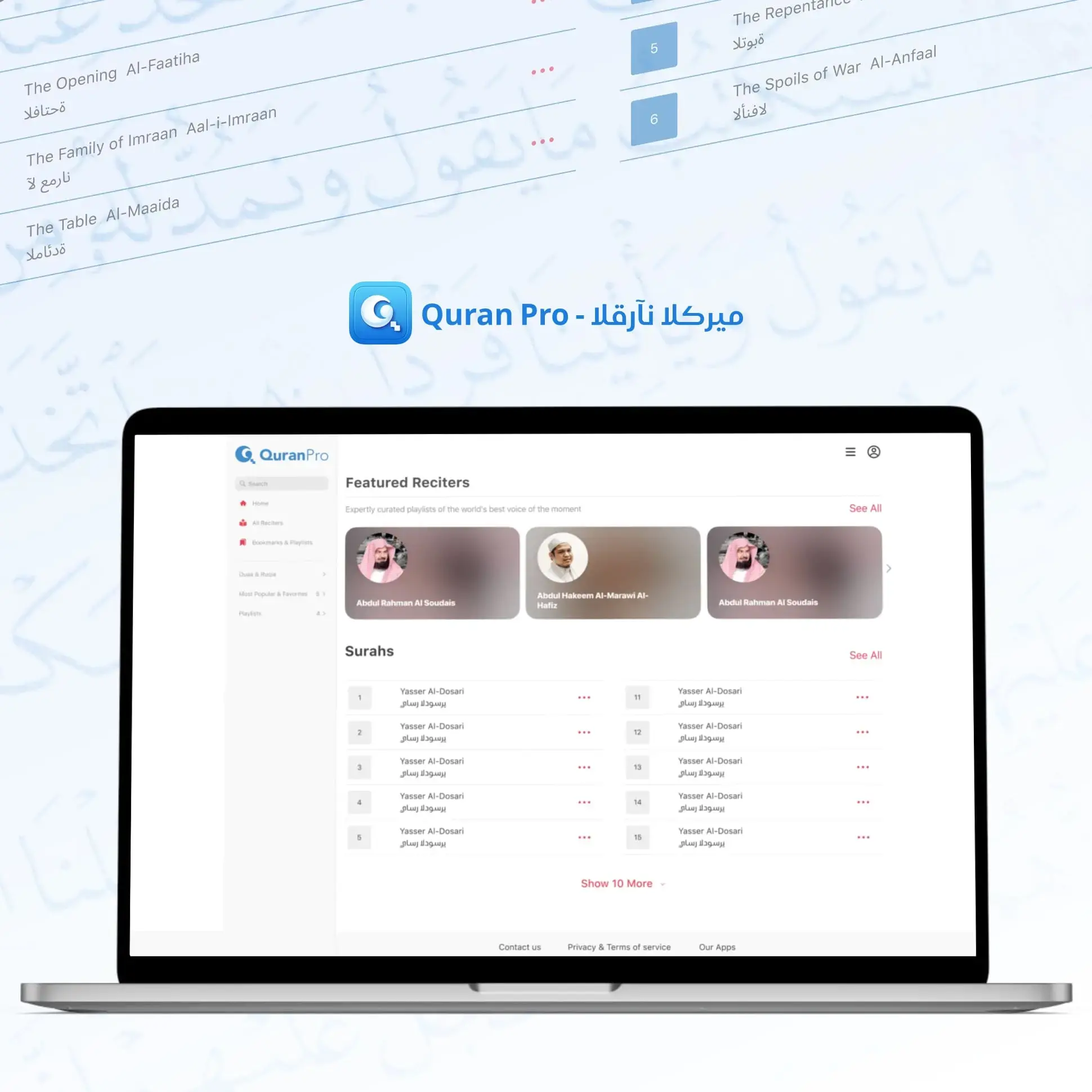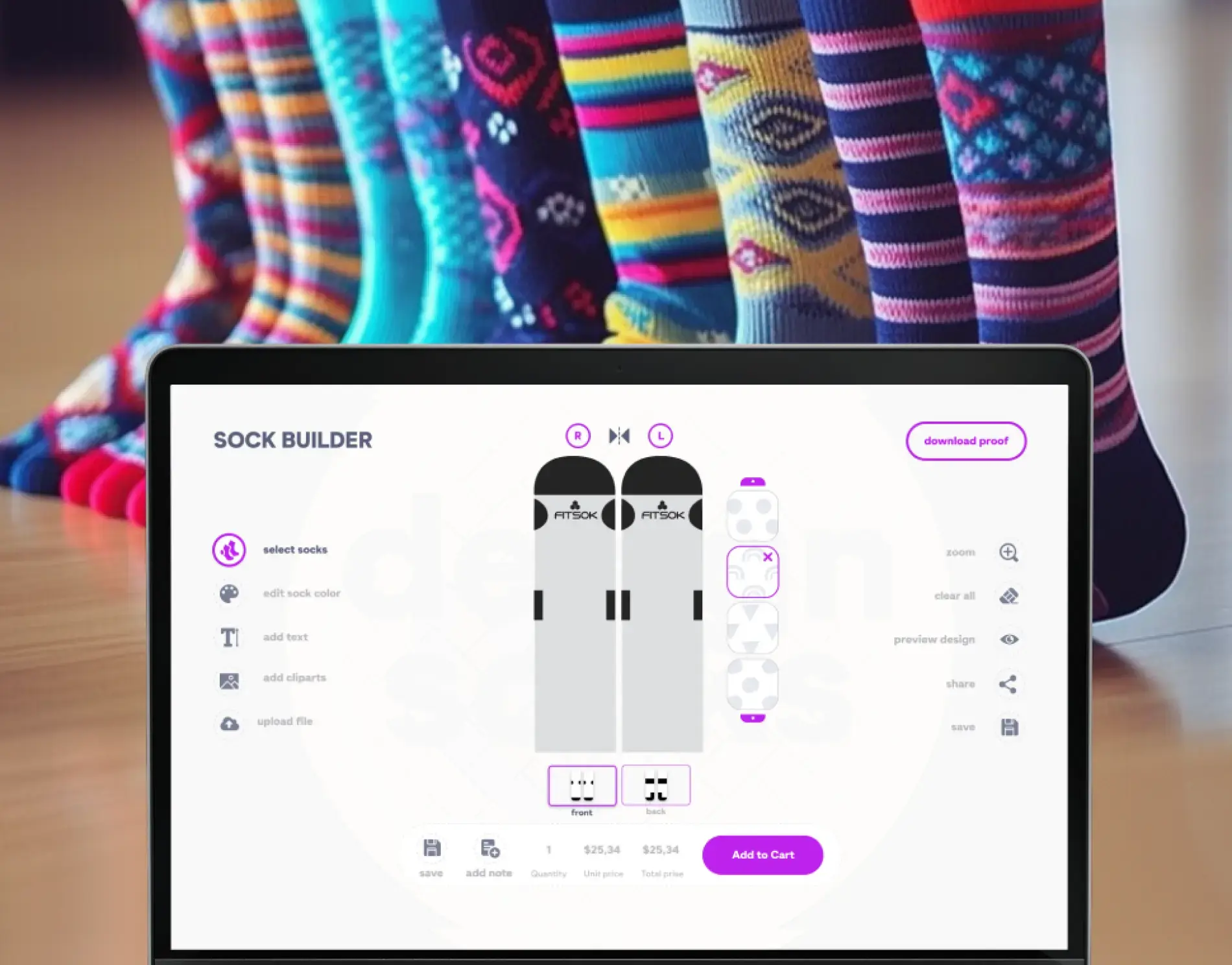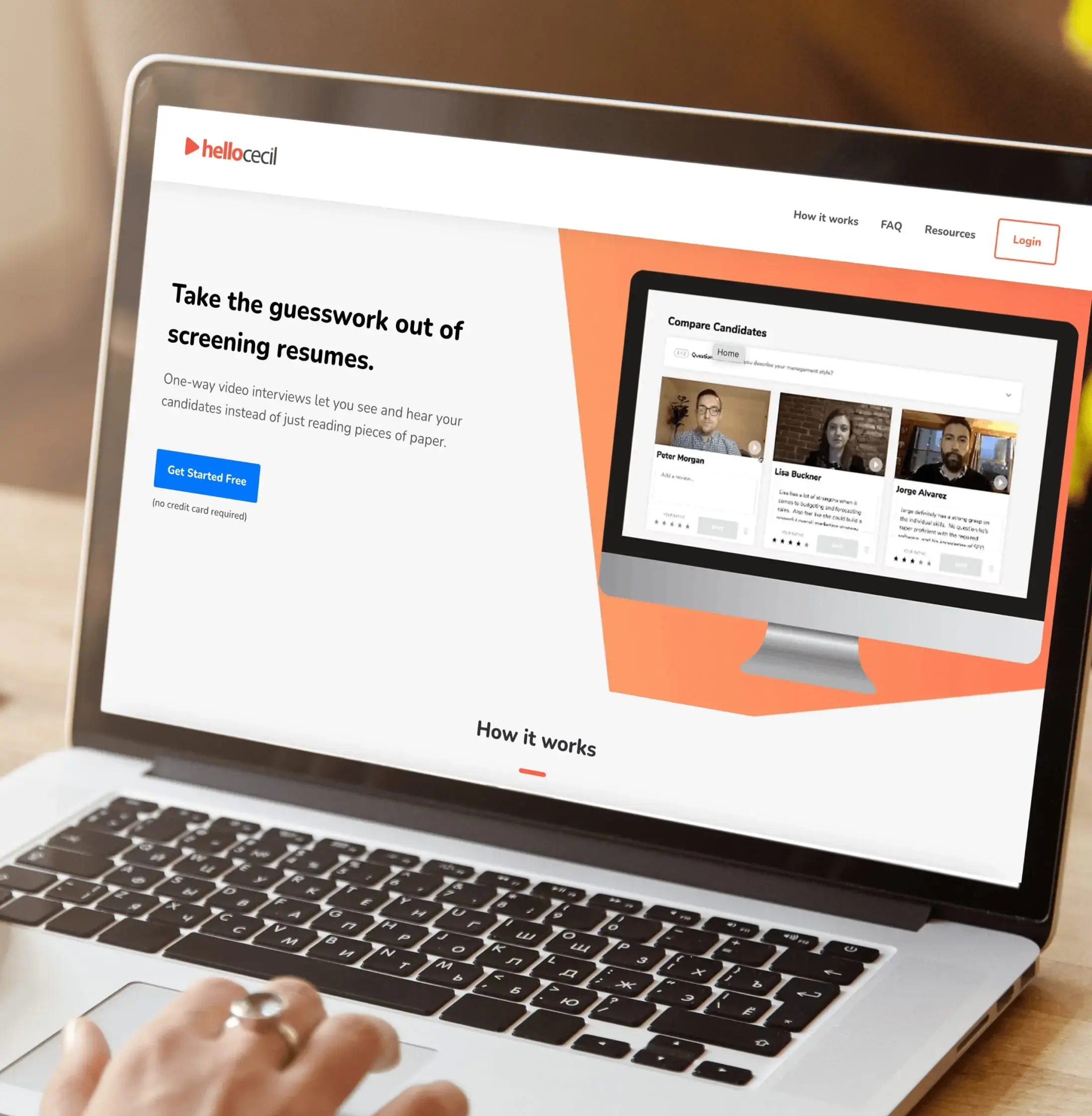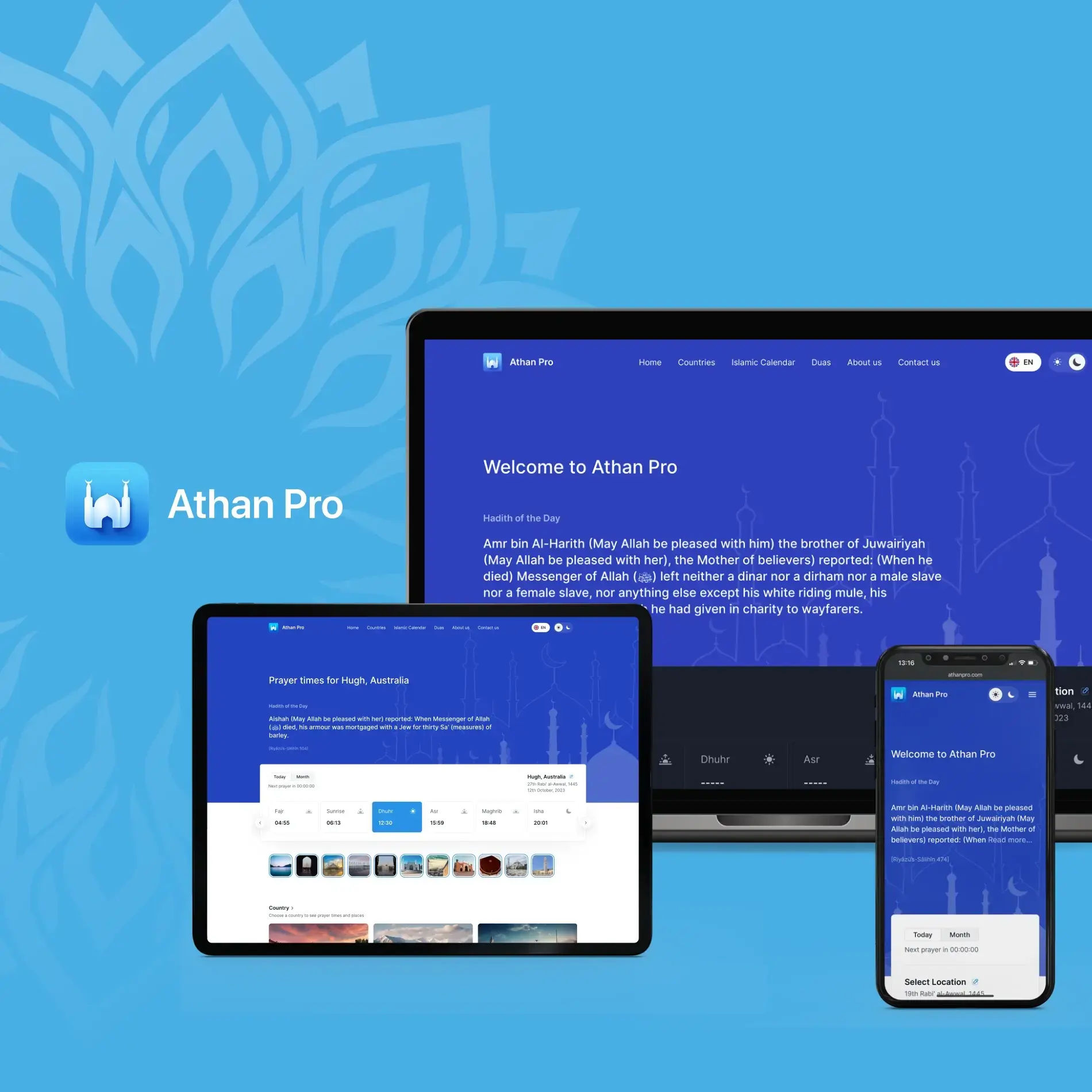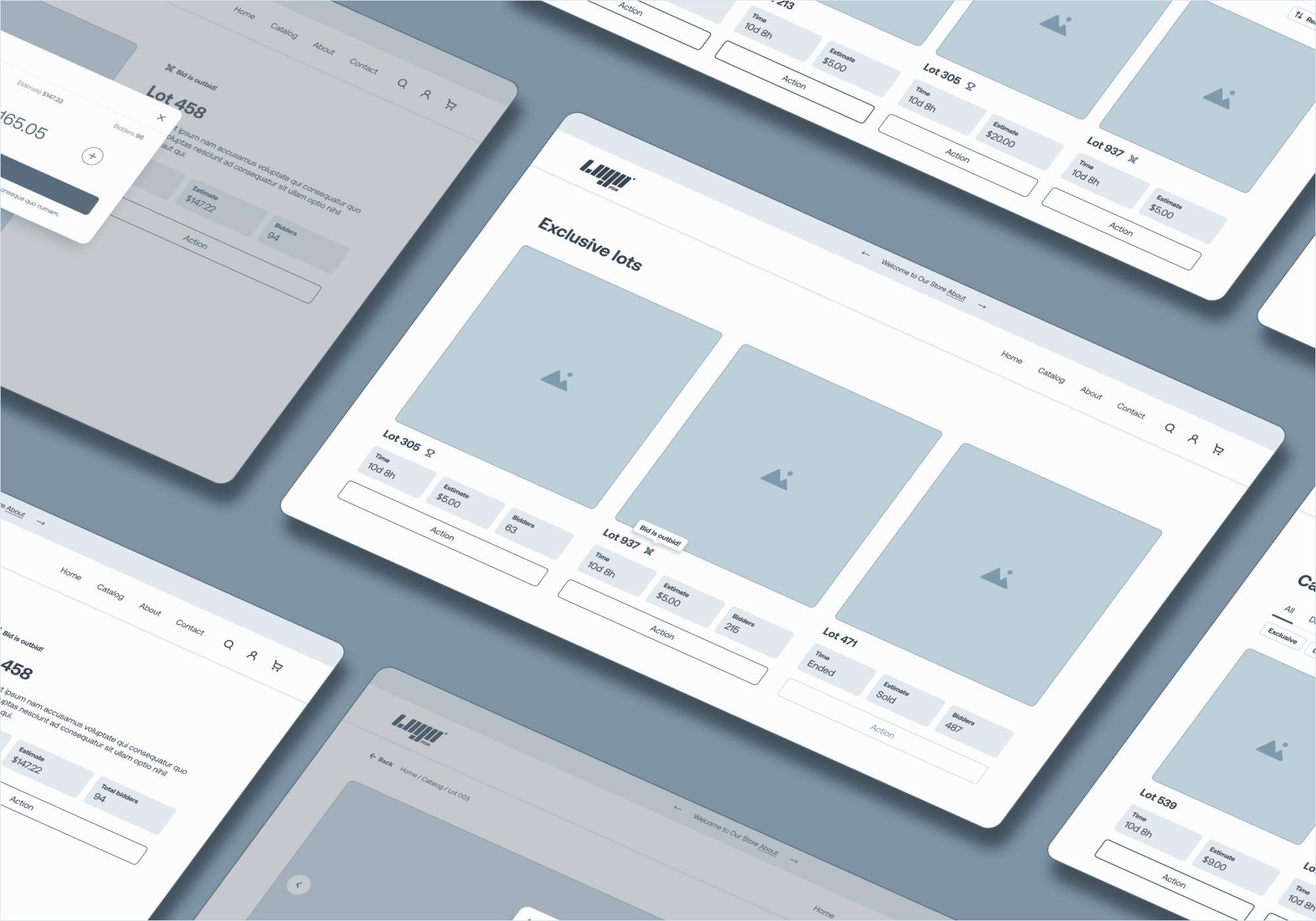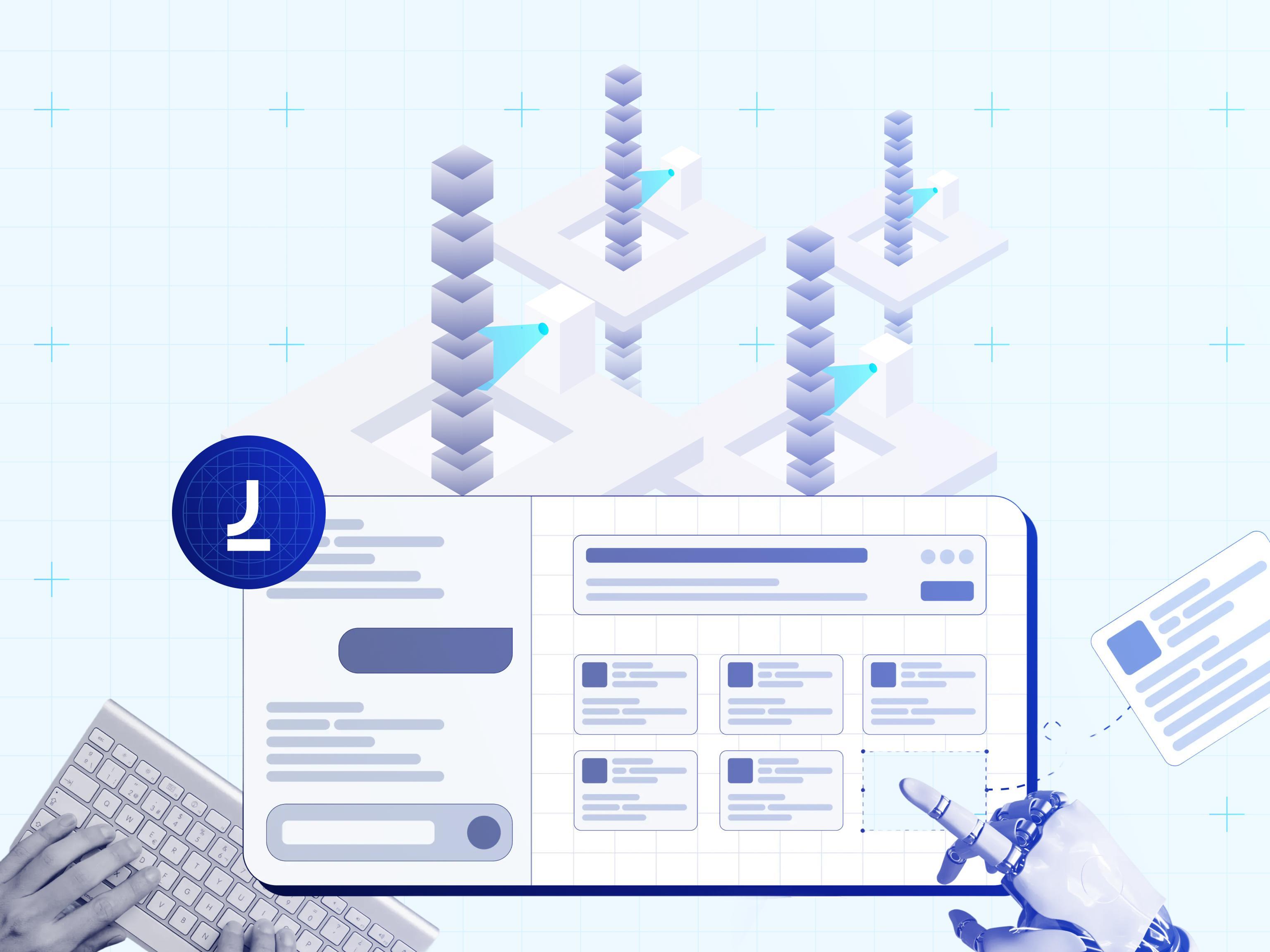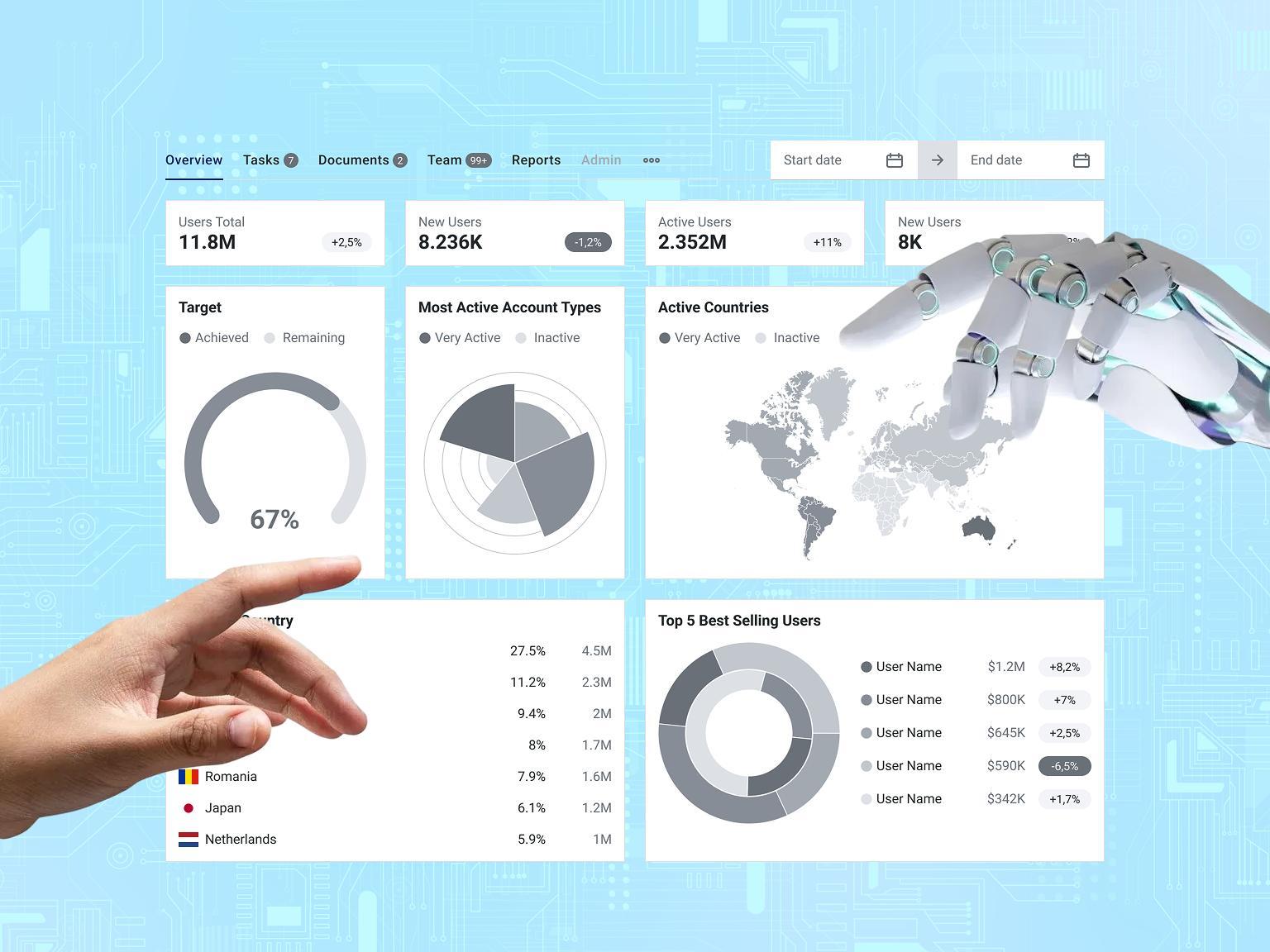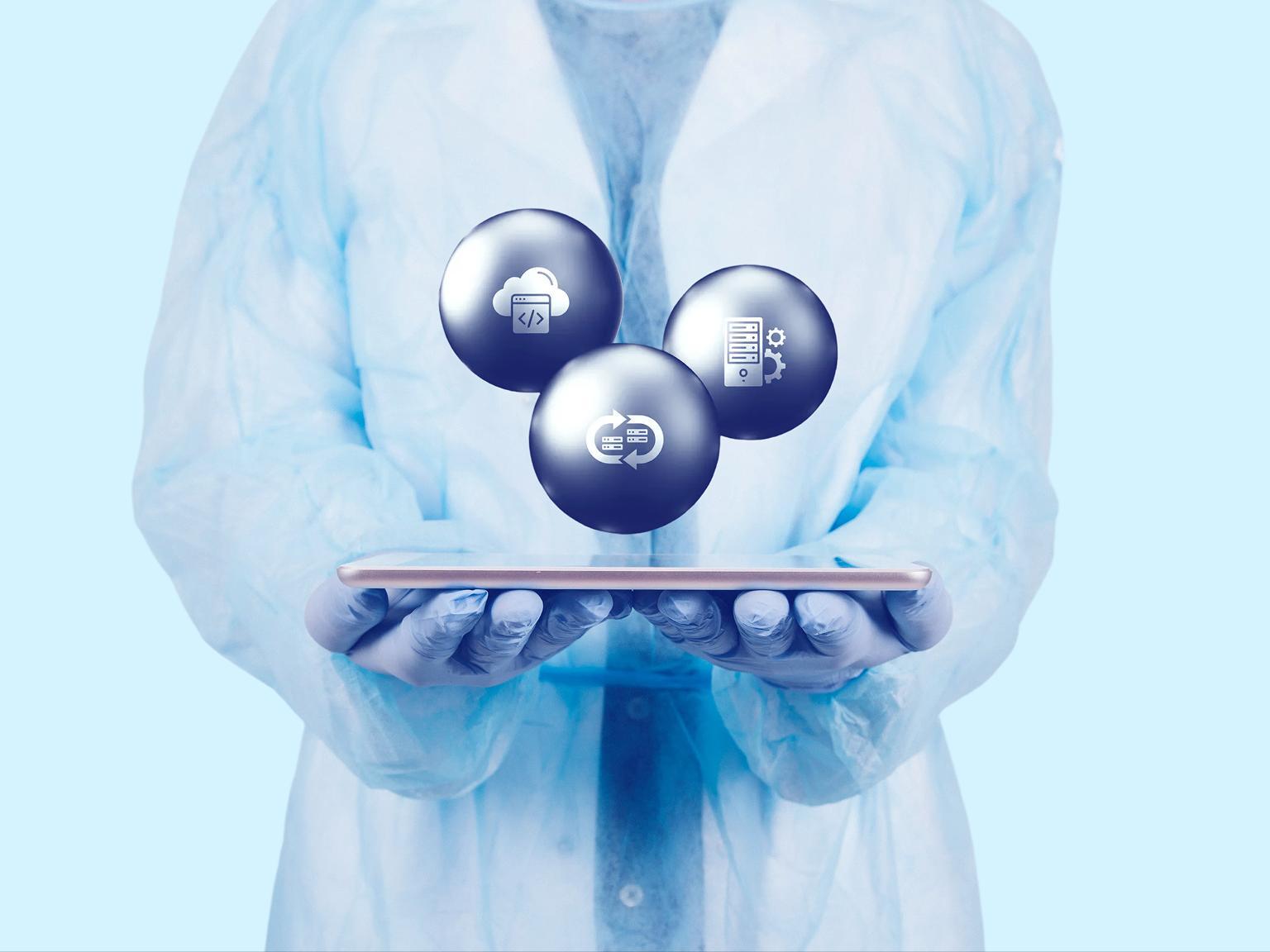There is no doubt that AI is here to stay, as companies offer AI development services in all types of industries, and plenty of businesses are investing big. With that said, some may doubt the benefits of AI in healthcare, as the technology is still fresh. JetBase likes to keep things objective to see the full picture, and today, we’ll help you do the same with AI in medicine.
This guide will show you why AI can be immensely helpful and also highlight potential challenges of the technology. We’ll tackle the pros as well as the cons specifically so you can know whether this is what your solution needs. Let’s begin by talking about the positives.
How AI Helps in the Healthcare Industry
So, why are people talking about artificial intelligence, especially in the context of medicine? Well, the straightforward answer is that AI can cover a lot of tasks and make life easier for teams. To illustrate just what AI can do for you, let’s take it on a case-by-case basis. Here are the ways AI benefits in healthcare.
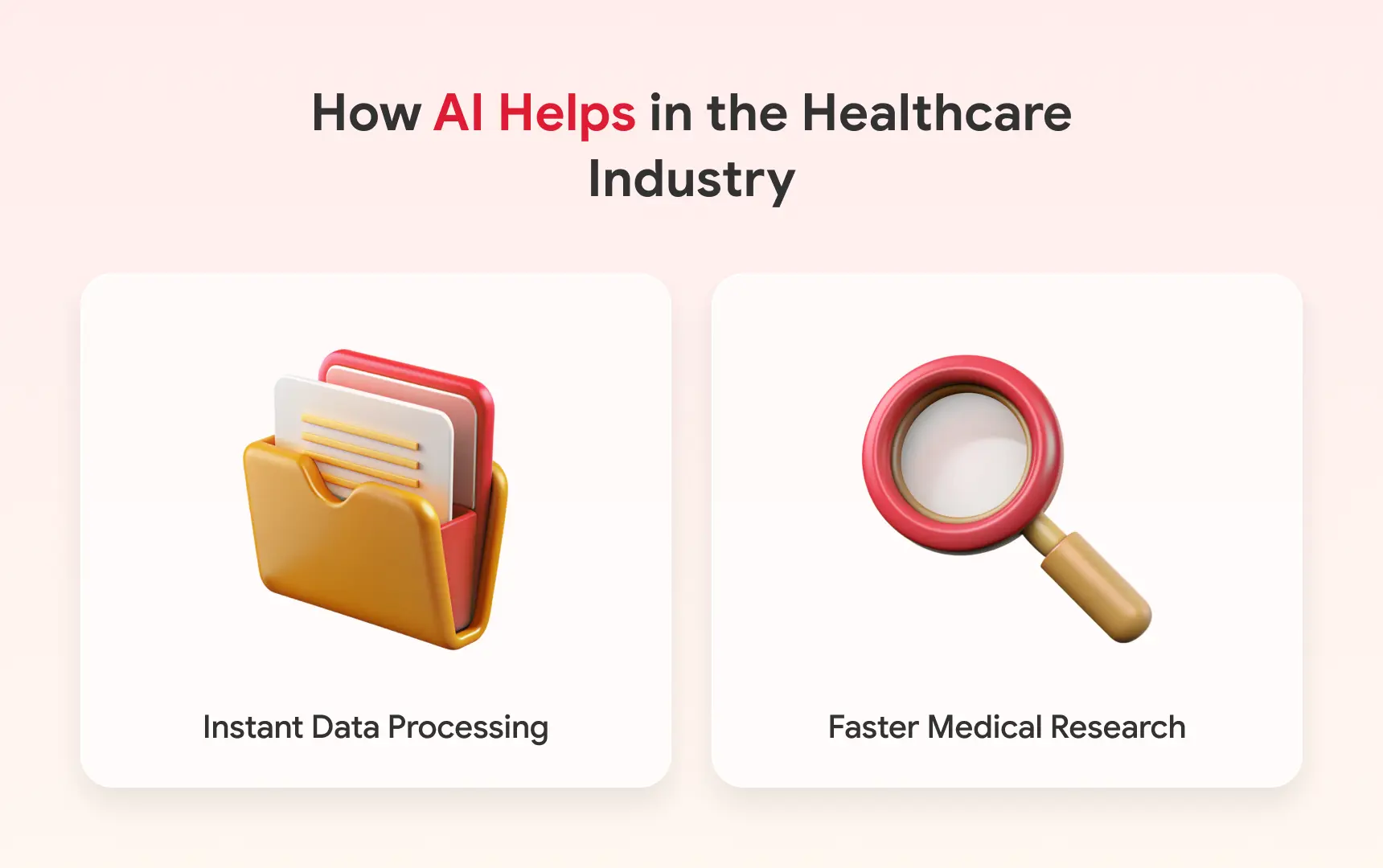
Instant Data Processing
Thanks to learning algorithms, you can train AI to understand the data that a hospital generates lightning-quick. As a result, patient registration, blood work, and record keeping can all be much faster. Eliminating the need for human input not only saves time but frees up employees to focus on more creative tasks while AI does the routine work.
Faster Medical Research
Clinical trials for new medications can take years, but thanks to AI, the process can become much more efficient. Tools based on models such as GPT-4 can analyze hundreds of studies and extract relevant data in a matter of minutes. This way, scientists receive relevant information without having to sift through it manually.
AI can simulate relevant experiments and predict the outcomes without having to actually run them. While this requires data to create the model, it’s still a much faster way to do things, making it one of the prime benefits of AI in healthcare.
Benefits of AI in Healthcare
Let’s talk about how AI affects medical businesses. You know what it can do, but what do those functions achieve? There’s quite a bit to mention, but we’ll stick to the core aspects.
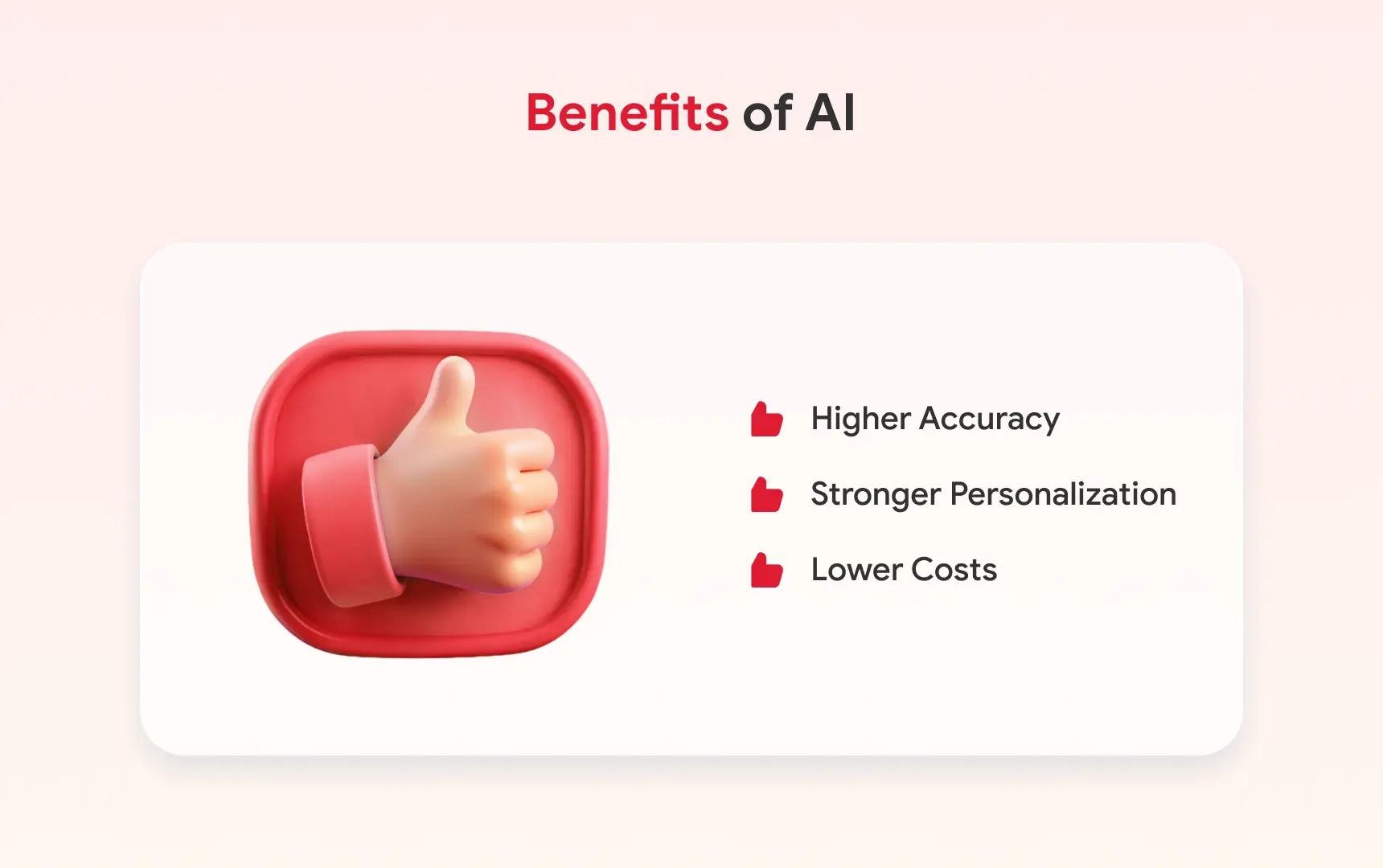
Higher Accuracy
Thanks to predictive algorithms and refined analysis, doctors can assess a patient’s state much more accurately. In fact, predictive AI makes it possible to forecast changes and anticipate potential illnesses. Some people bring it up as part of the potential negative impact of AI in healthcare, citing the fact that algorithms aren’t 100% reliable. However, their constant improvement guarantees better results, and they’re already very accurate.
Stronger Personalization
Some may think that one of the disadvantages of AI in healthcare is that “machines are impersonal.” However, nobody is intending to replace nurses and doctors with robots. Instead, AI allows for faster information gathering and surveying of patients. This, in turn, lets hospitals offer patients exactly what they need, customizing their experience to make it more comfortable.
Lower Costs
Small administrative operations can really run up a big tab since all of them require manual labor. With AI automation, you can get rid of admin headaches, which cost the US healthcare system $1 trillion a year. It streamlines EHR and automates parts of it, cutting expenses substantially.
We promised we’d cover both the pros and cons of AI in healthcare. Now that we’re done with the positives let’s move on to the second part.
Negatives of AI in Healthcare
What you’ll find rather quickly is that a lot of the cons of AI in healthcare are centered around theoretical issues. They hinge on poor or unethical implementations of AI, which should not be an issue for companies approaching the technology with the necessary expertise. We’ll let you be the judge, though, as we present the most commonly discussed AI disadvantages in healthcare.
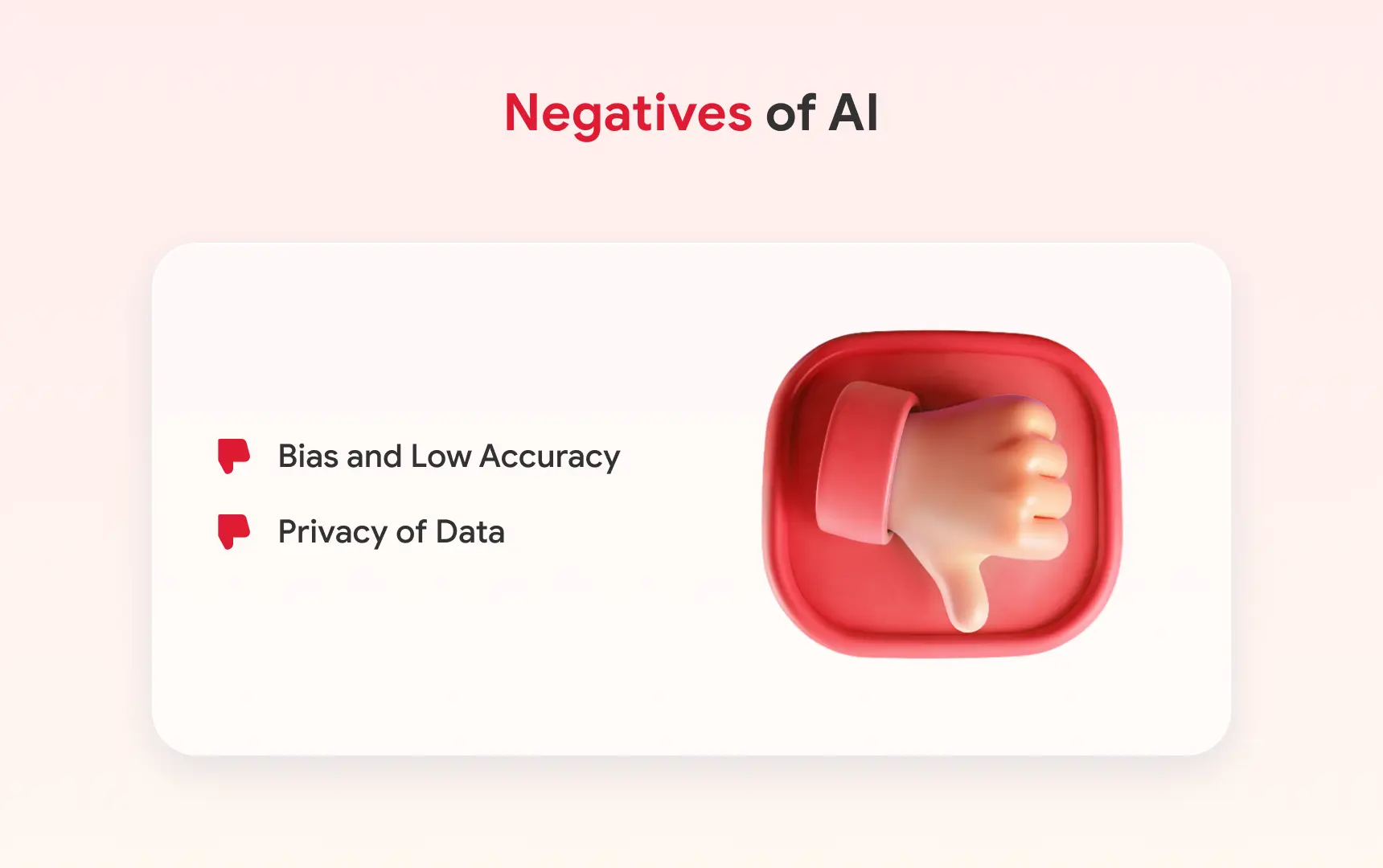
Bias and Low Accuracy
Using AI with incomplete or faulty data can lead to issues like bias and poor predictions. However, this can only happen if companies don’t do their due diligence, refining the data that they rely on. Any business aiming to supplement its infrastructure with AI has to make accuracy and productive training their main concern.
Privacy of Data
Another issue on the list of cons of AI in healthcare is privacy and security. Concerns about keeping data protected when it’s fed to the AI are valid, of course. Without proper encryption, data is always at risk, especially if you use fully third-party models. To avoid this, train your own model and make sure to anonymize data. Following regulations like HIPAA is essential in this matter, too.
Boundaries of AI in Healthcare You Can Face
While we talked about the pros and cons of AI in healthcare, it’s also important to acknowledge AI’s limitations. It’s not a cure-all, and applying it carelessly won’t do you any good.
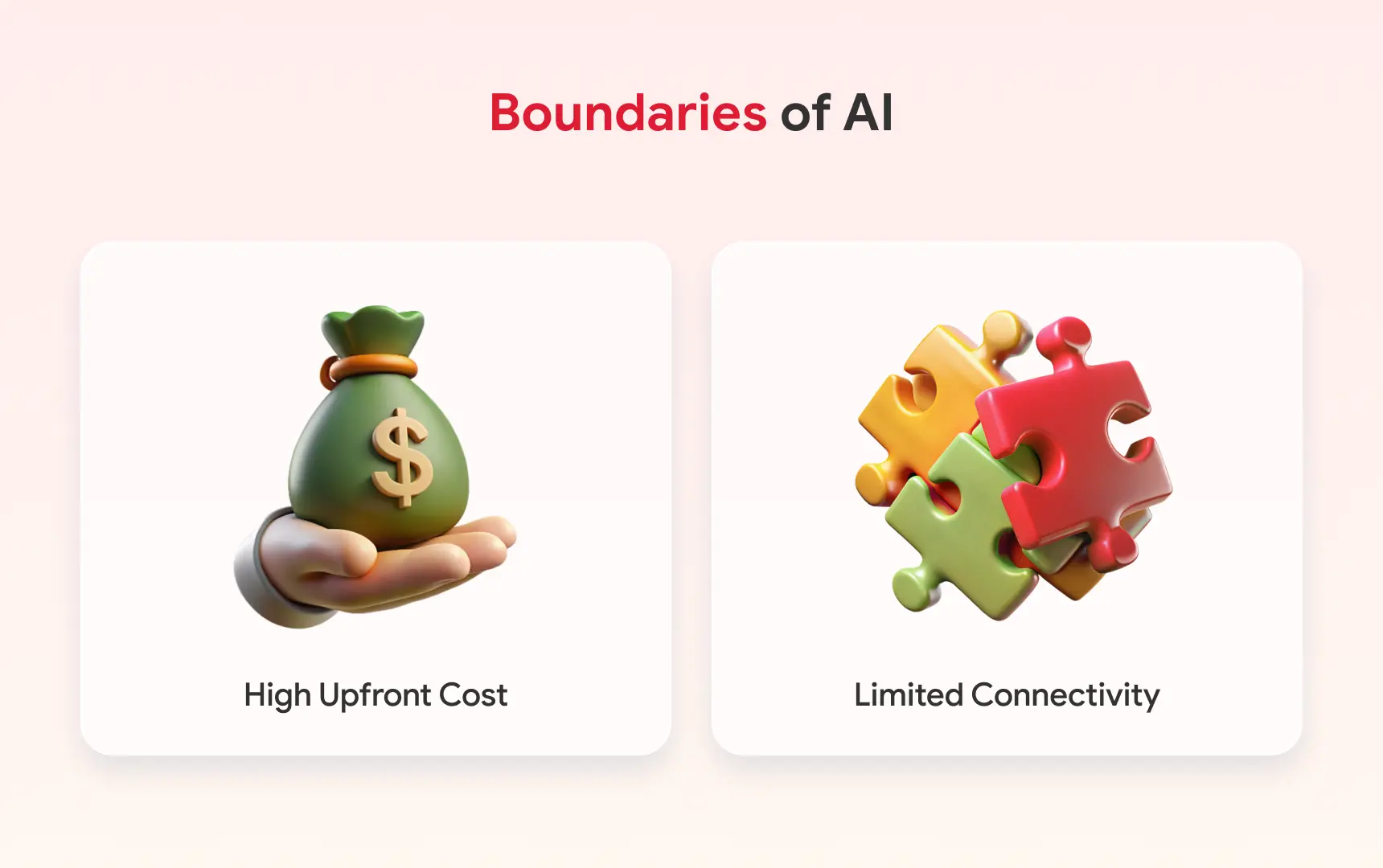
High Upfront Cost
While we cited the ultimate reduction of expenses as one of the benefits of AI in healthcare, it’s important to understand that the initial investment is no joke. Training an AI model and developing solutions that will use it is costly, making the first stages off-putting to some. However, the savings will eventually help recoup the cost of development, making AI worth it.
Limited Connectivity
Keeping hospital legacy systems interoperable with new applications that use AI can definitely be a challenge. It’s important to have staff available to integrate the two, which means either finding a good outsourcing company or expanding your in-house department. However, without proper access to your old databases and tools, AI won’t be as effective.
Is It Appropriate to Use Artificial Intelligence in Healthcare?
While we can’t ignore the potential negative impact of artificial intelligence in healthcare, it is important to put the emphasis on “potential.” Yes, flawed implementation or data processing could pose a threat to a business using AI. However, with a skilled team and a measured approach, you can avoid the majority of such issues.
Meanwhile, the benefits of AI in healthcare are apparent and would be downright difficult to miss. If a business follows the right path, for example, by sticking to WHO guidelines, there’s very little to worry about. As long as you follow the best practices and cooperate with a team of devs who know AI inside and out, you won’t have issues.
One last piece of advice we would give is that it’s important to use AI sparingly. Only apply it for use cases where it can make a difference:
- Analyzing a patient’s medical history
- Researching new medication
- Processing medical imagery
Each of these directly benefits from the smart automation that AI brings. With a careful approach, you’ll reap AI benefits in healthcare while boosting your operations.
Make Your Own AI Application for Healthcare
While we talked about the negative impact of AI in healthcare, we’re sure that all the positives have left you keen to try out the tech for yourself. After all, AI can help automate routine tasks, reduce costs, and improve patient care. But AI in healthcare benefits those who put in the work and have a professional team implementing AI-powered features.

This is why we recommend turning to JetBase, as we’re a team with more than a decade of experience. Our devs have developed medical apps of all kinds, and we’ve been interested in AI and its transformation of traditional industries for years. We’ve also integrated AI into our projects, such as a Remote patient monitoring solution and Energex, a SaaS energy management solution.
We will gladly help you reap AI advantages in healthcare. Our experts can consult you on the project, extend your team, or handle the whole development process, depending on your needs. Just send us a message, and we’ll figure out how we can collaborate.




